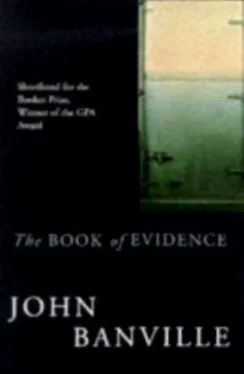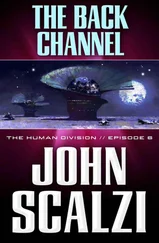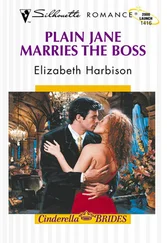
John Banville
The Book Of Evidence
My lord, when you ask me to tell the court in my own words, this is what I shall say. I am kept locked up here like some exotic animal, last survivor of a species they had thought extinct. They should let in people to view me, the girl-eater, svelte and dangerous, padding to and fro in my cage, my terrible green glance flickering past the bars, give them something to dream about, tucked up cosy in their beds of a night. After my capture they clawed at each other to get a look at me. They would have paid money for the privilege, I believe. They shouted abuse, and shook their fists at me, showing their teeth. It was unreal, somehow, frightening yet comic, the sight of them there, milling on the pavement like film extras, young men in cheap raincoats, and women with shopping bags, and one or two silent, grizzled characters who just stood, fixed on me hungrily, haggard with envy. Then a guard threw a blanket over my head and bundled me into a squad car. I laughed. There was something irresistibly funny in the way reality, banal as ever, was fulfilling my worst fantasies. By the way, that blanket. Did they bring it specially, or do they always keep one handy in the boot? Such questions trouble me now, I brood on them. What an interesting figure I must have cut, glimpsed there, sitting up in the back like a sort of mummy, as the car sped through the wet, sunlit streets, bleating importantly.
Then this place. It was the noise that impressed me first of all. A terrible racket, yells and whistles, hoots of laughter, arguments, sobs. But there are moments of stillness, too, as if a great fear, or a great sadness, has fallen suddenly, striking us all speechless. The air stands motionless in the corridors, like stagnant water. It is laced with a faint stink of carbolic, which bespeaks the charnel-house. In the beginning I fancied it was me, I mean I thought this smell was mine, my contribution. Perhaps it is? The daylight too is strange, even outside, in the yard, as if something has happened to it, as if something has been done to it, before it is allowed to reach us. It has an acid, lemony cast, and comes in two intensities: either it is not enough to see by or it sears the sight. Of the various kinds of darkness I shall not speak.
My cell. My cell is. Why go on with this.
Remand prisoners are assigned the best cells. This is as it should be. After all, I might be found innocent. Oh, I mustn't laugh, it hurts too much, I get a terrible twinge, as if something were pressing on my heart – the burden of my guilt, I suppose. I have a table and what they call an easy chair. There is even a television set, though I rarely watch it, now that my case is sub judice and there is nothing about me on the news. The sanitation facilities leave something to be desired. Slopping out: how apt, these terms. I must see if I can get a catamite, or do I mean a neophyte? Some young fellow, nimble and willing, and not too fastidious. That shouldn't be difficult. I must see if I can get a dictionary, too.
Above all I object to the smell of semen everywhere. The place reeks of it.
I confess I had hopelessly romantic expectations of how things would be in here. Somehow I pictured myself a sort of celebrity, kept apart from the other prisoners in a special wing, where I would receive parties of grave, important people and hold forth to them about the great issues of the day, impressing the men and charming the ladies. What insight! they would cry. What breadth! We were told you were a beast, cold-blooded, cruel, but now that we have seen you, have heard you, why -! And there am I, striking an elegant pose, my ascetic profile lifted to the light in the barred window, fingering a scented handkerchief and faintly smirking, Jean-Jacques the cultured killer.
Not like that, not like that at all. But not like other clichés either. Where are the mess-hall riots, the mass break-outs, that kind of thing, so familiar from the silver screen? What of the scene in the exercise yard in which the stoolie is done to death with a shiv while a pair of blue-jawed heavyweights stage a diversionary fight? When are the gang-bangs going to start? The fact is, in here is like out there, only more so. We are obsessed with physical comfort. The place is always overheated, we might be in an incubator, yet there are endless complaints of draughts and sudden chills and frozen feet at night. Food is important too, we pick over our plates of mush, sniffing and sighing, as if we were a convention of gourmets. After a parcel delivery word goes round like wildfire. Psst ! She's sent him a battenberg! Homemade! It's just like school, really, the mixture of misery and cosiness, the numbed longing, the noise, and everywhere, always, that particular smelly grey warm male fug.
It was different, I'm told, when the politicals were here. They used to frog-march up and down the corridors, barking at each other in bad Irish, causing much merriment among the ordinary criminals. But then they all went on hunger strike or something, and were moved away to a place of their own, and life returned to normal.
Why are we so compliant? Is it the stuff they are said to put in our tea to dull the libido? Or is it the drugs. Your honour, I know that no one, not even the prosecution, likes a squealer, but I think it is my duty to apprise the court of the brisk trade in proscribed substances which is carried on in this institution. There are screws, I mean warders, involved in it, I can supply their numbers if I am guaranteed protection. Anything can be had, uppers and downers, tranqs, horse, crack, you name it – not that you, of course, your worship, are likely to be familiar with these terms from the lower depths, I have only learned them myself since coming here. As you would imagine, it is mainly the young men who indulge. One recognises them, stumbling along the gangways like somnambulists, with that little, wistful, stunned smile of the truly zonked. There are some, however, who do not smile, who seem indeed as if they will never smile again. They are the lost ones, the goners. They stand gazing off, with a blank, preoccupied expression, the way that injured animals look away from us, mutely, as if we are mere phantoms to them, whose pain is taking place in a different world from ours.
But no, it's not just the drugs. Something essential has gone, the stuffing has been knocked out of us. We are not exactly men any more. Old lags, fellows who have committed some really impressive crimes, sashay about the place like dowagers, pale, soft, pigeon-chested, big in the beam. They squabble over library books, some of them even knit. The young too have their hobbies, they sidle up to me in the recreation room, their calf eyes fairly brimming, and shyly display their handiwork. If I have to admire one more ship in a bottle I shall scream. Still, they are so sad, so vulnerable, these muggers, these rapists, these baby-batterers. When I think of them I always picture, I'm not sure why, that strip of stubbly grass and one tree that I can glimpse from my window if I press my cheek against the bars and peer down diagonally past the wire and the wall.
Stand up, please, place your hand here, state your name clearly. Frederick Charles St John Vanderveld Montgomery. Do you swear to tell the truth, the whole truth and nothing but the truth? Don't make me laugh. I want straight away to call my first witness. My wife. Daphne. Yes, that was, is, her name. For some reason people have always found it faintly comic. I think it matches very well her damp, dark, myopic beauty. I see her, my lady of the laurels, reclining in a sun-dazed glade, a little vexed, looking away with a small frown, while some minor god in the shape of a faun, with a reed pipe, prances and capers, vainly playing his heart out for her. It was that abstracted, mildly dissatisfied air which first drew my attention to her. She was not nice, she was not good. She suited me. Perhaps I was already thinking of a time to come when I would need to be pardoned – by someone, anyone – and who better to do that than one of my own kind.
Читать дальше













